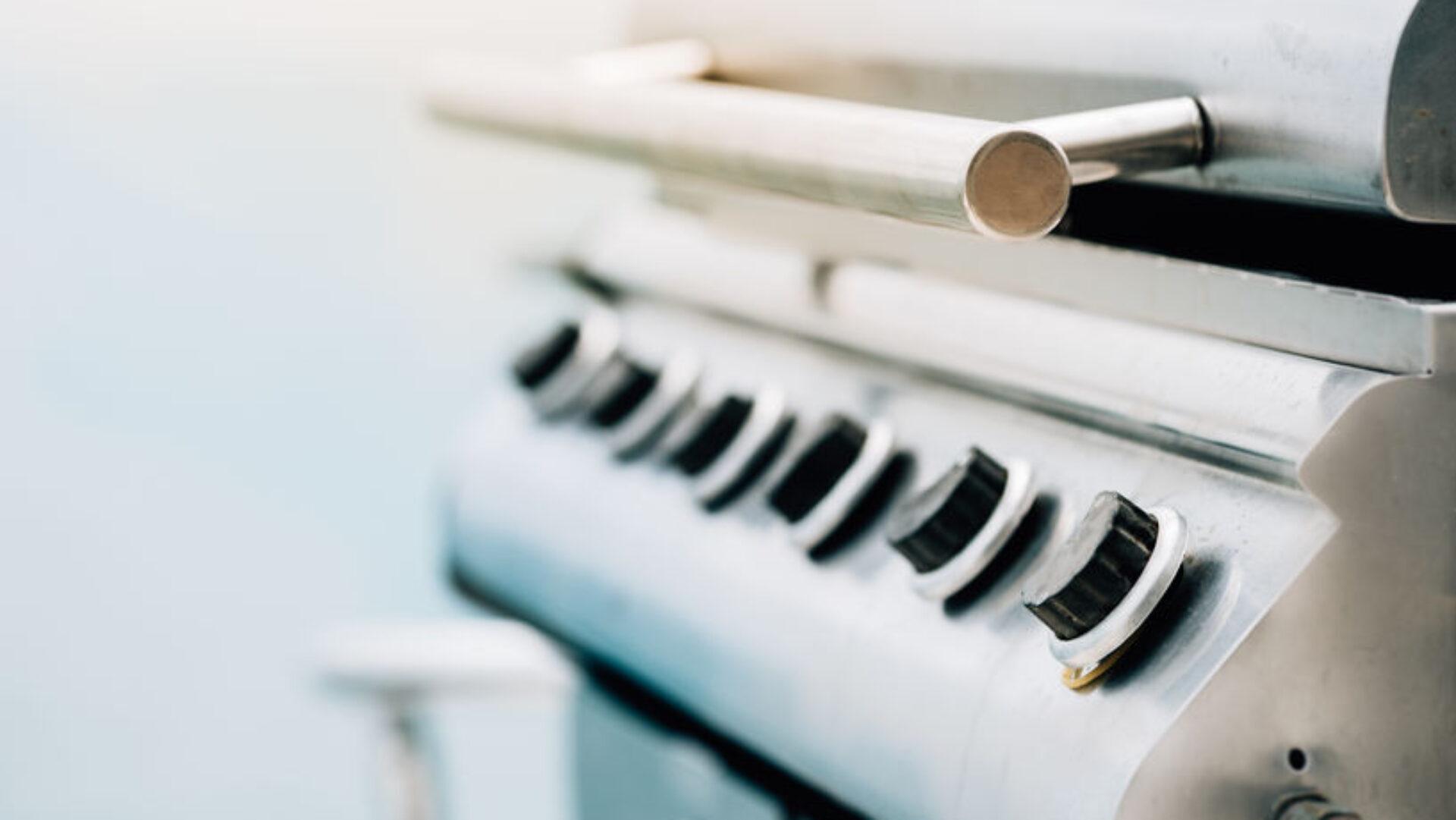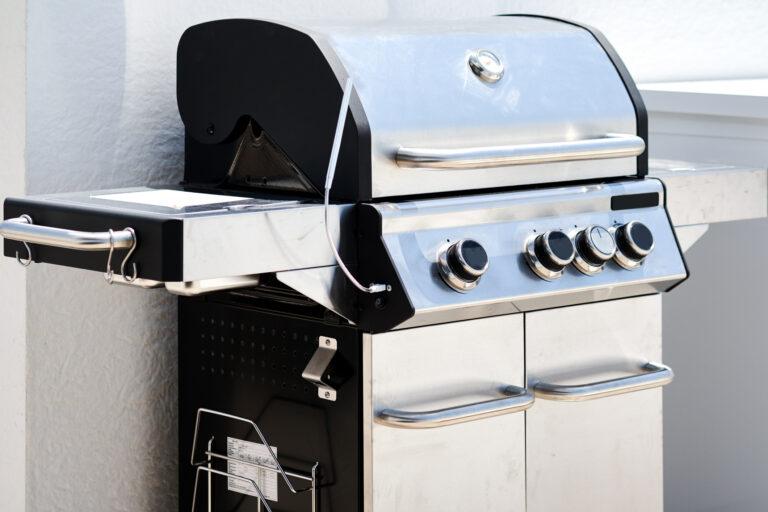 Selecting the right grill involves more than just looking at features or price.
Selecting the right grill involves more than just looking at features or price.
Durability and resistance to rust are crucial, as grills are exposed to various weather conditions.
Among the available options, stainless steel grills offer the highest resistance to rust, making them a preferred choice for those seeking longevity.
The composition of materials plays a significant role in determining how well a grill withstands rust.
Stainless steel, especially when it has a high chromium content, provides a robust defense against rusting.
Aluminum grills also present good resistance, though they may not match the durability of stainless steel.
Keeping maintenance habits in mind also affects the lifespan of a grill.
Regular cleaning and proper storage can significantly reduce the risk of rust, even in less resistant materials.
By investing in a grill made of high-quality materials and following proper care instructions, users can enjoy many seasons of cooking without worrying about rust.
Understanding Grill Materials and Durability
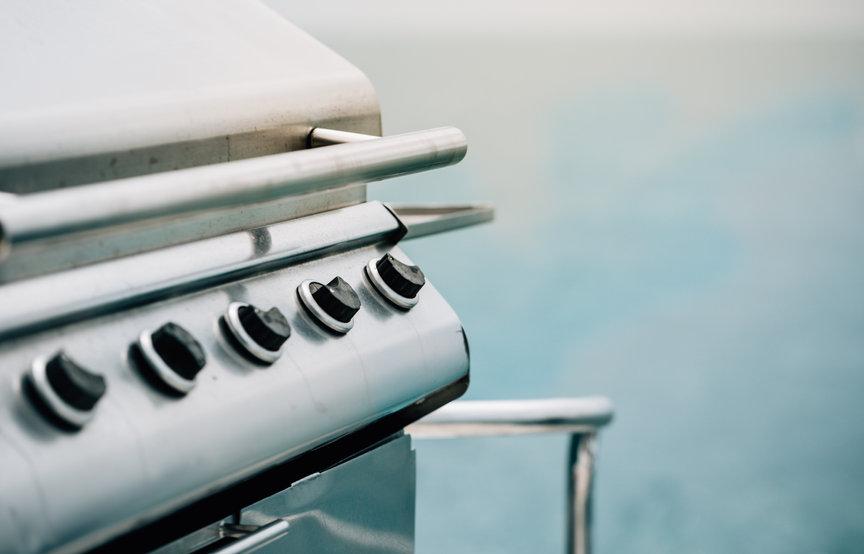
When choosing a grill, material plays a key role in durability and resistance to rust.
Various materials like stainless steel, cast iron, and aluminum offer different benefits in terms of longevity, maintenance, and weather resistance.
Stainless Steel Grills
Stainless steel grills are renowned for their resistance to rust and corrosion, making them a popular choice.
They often require less maintenance compared to other materials as stainless steel resists stains and is easy to clean.
Grade 304 stainless steel is highly recommended for its superior corrosion resistance and durability in harsh weather conditions.
These grills provide a polished, attractive appearance and withstand high temperatures without warping.
It’s essential to ensure all components, including bolts and screws, are composed of stainless steel to avoid mixed-material erosion.
Cast Iron Grills
Cast iron grills are celebrated for their exceptional heat retention and even cooking performance, which is beneficial for achieving professional grilling results.
Proper seasoning and maintenance are crucial to prevent these grills from rusting.
Regular oiling creates a protective layer, enhancing both durability and non-stick surface properties.
While heavier and less portable, cast iron grills offer a robust grilling experience.
They need to be stored properly, ideally covered or indoors, to maximize lifespan and minimize rust risk.
Being diligent about cleaning and seasoning improves build longevity and performance.
Aluminum Grills
Aluminum grills are lightweight and naturally resistant to rust, offering a strong choice for those prioritizing portability.
Alumina, a natural oxide layer, provides an inherent layer of protection against corrosion. Unlike other grill materials, aluminum does not require intensive maintenance to maintain its rust-free state.
While not as heat-retentive as cast iron, aluminum grills heat up quickly and distribute heat efficiently.
Powder-coated aluminum enhances durability and aesthetic appeal.
Their lighter build makes them ideal for travel and easy repositioning, making them versatile for various grilling situations.
Factors Contributing to Rust Formation
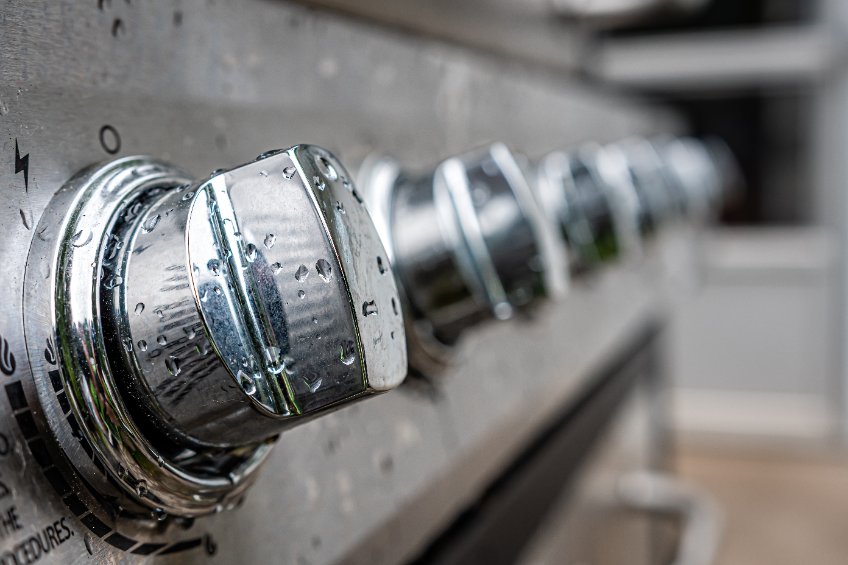
Rust formation on grills can stem from factors such as exposure to moisture, lack of proper maintenance, and the quality of materials used in construction.
Understanding these factors can help choose a grill that stands a better chance of resisting rust over time.
Environmental Exposure
Moisture from rain, snow, or humidity is a major contributor to rust.
Grills stored outdoors without adequate protection are prone to accumulating moisture.
This prolonged exposure promotes oxidation, which leads to rust.
Coastal areas with salty air add another layer of corrosion risk.
Temperature fluctuations can also encourage condensation on grill surfaces.
Covering grills with waterproof covers and keeping them in sheltered areas minimizes environmental impact.
Those routinely in harsh weather require additional protective measures to avoid rust.
Maintenance and Care
Regular maintenance plays a crucial role in preventing rust.
Residue left on the grill from cooking can attract moisture, fostering an ideal rust environment.
Cleaning grills after each use and removing ash or grease ensures that moisture does not easily accumulate.
Applying a suitable grilling oil helps create a barrier against moisture.
Regularly checking and tightening any bolts or screws prevents rust from forming in these small joints.
It’s crucial to promptly address scratches or chips in the grill surface.
Quality of Material
The material used in the grill’s construction significantly affects its resistance to rust.
Stainless steel and cast aluminum are known for their durability and resistance to corrosion, making them preferred materials for grills.
Cheaper metals may be more susceptible to rusting over time.
Coatings like porcelain enameling add an extra layer of protection against rust.
This coating prevents moisture penetration to the metal underneath.
When selecting a grill, one should ensure that quality materials are used in all parts, not just the external surfaces.
Comparison of Grill Types
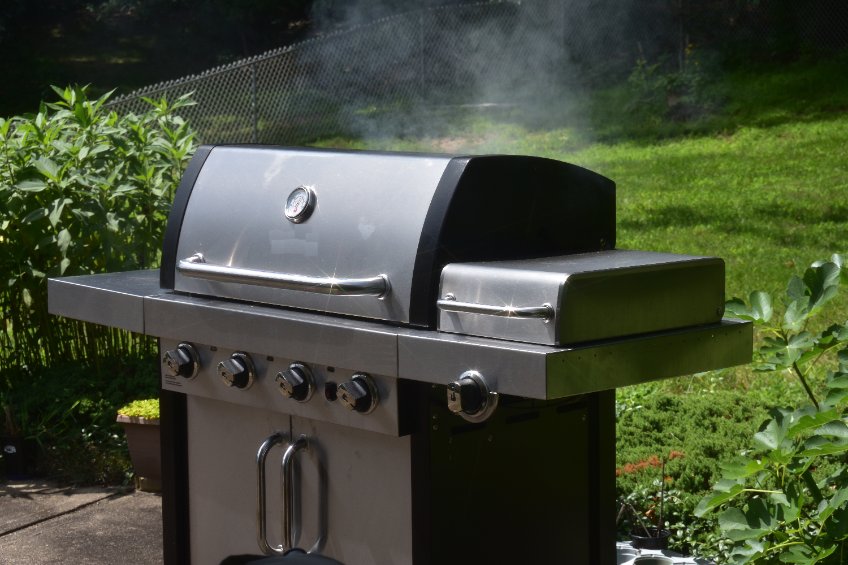
Different grill types offer varying levels of rust resistance, influenced by their materials and construction technologies.
Infrared grills stand out with innovative cooking solutions and enhanced rust resistance, while traditional grills are known for their familiar, robust designs.
Comparing propane and charcoal grills highlights important durability factors that are crucial for potential buyers.
Infrared Grills Vs. Traditional Grills
Infrared grills utilize advanced technology that distributes heat evenly across the cooking surface.
This method not only enhances cooking efficiency but also reduces the chance of metal components rusting due to uniform heat application.
Besides, many infrared models incorporate stainless steel, enhancing resistance to corrosion.
 Like example this Napoleon Prestige® 500 Gas Grill combines durable stainless steel construction with advanced infrared technology.
Like example this Napoleon Prestige® 500 Gas Grill combines durable stainless steel construction with advanced infrared technology.
It features four main burners, an infrared rear and side burner, delivering up to 80,000 BTUs and a 900-square-inch cooking area.
The grill’s infrared burners ensure high-temperature searing, while features like WAVE™ cooking grids, JETFIRE™ ignition, and SafetyGlow control knobs enhance performance and safety.
This sleek, rust-resistant grill is perfect for versatile and reliable outdoor cooking.
On the other hand, traditional grills often rely on cast iron or standard steel, which can be more susceptible to rust without proper maintenance.
Regular cleaning and protective coatings can help mitigate these risks.
Traditional grills generally feature simpler designs, which might appeal to those who value straightforwardness and familiarity.
Propane Grills Vs. Charcoal Grills
Propane grills are popular for their quick ignition and convenience.
They often use materials like stainless steel or coated aluminum, which provide good resistance to rust.
The use of gas can help avoid moisture accumulation, reducing rust potential.
These grills are favored for consistent, manageable heat which aids longevity.
Charcoal grills, while offering a unique flavor profile, present different durability challenges.
Excess ash and residue can attract moisture, increasing rust risks if not regularly emptied and cleaned.
Typical charcoal models often incorporate materials that need more maintenance to prevent corrosion.
Proper handling and storage are crucial to prolong the lifespan of these grills.
Protective Measures to Prevent Rust
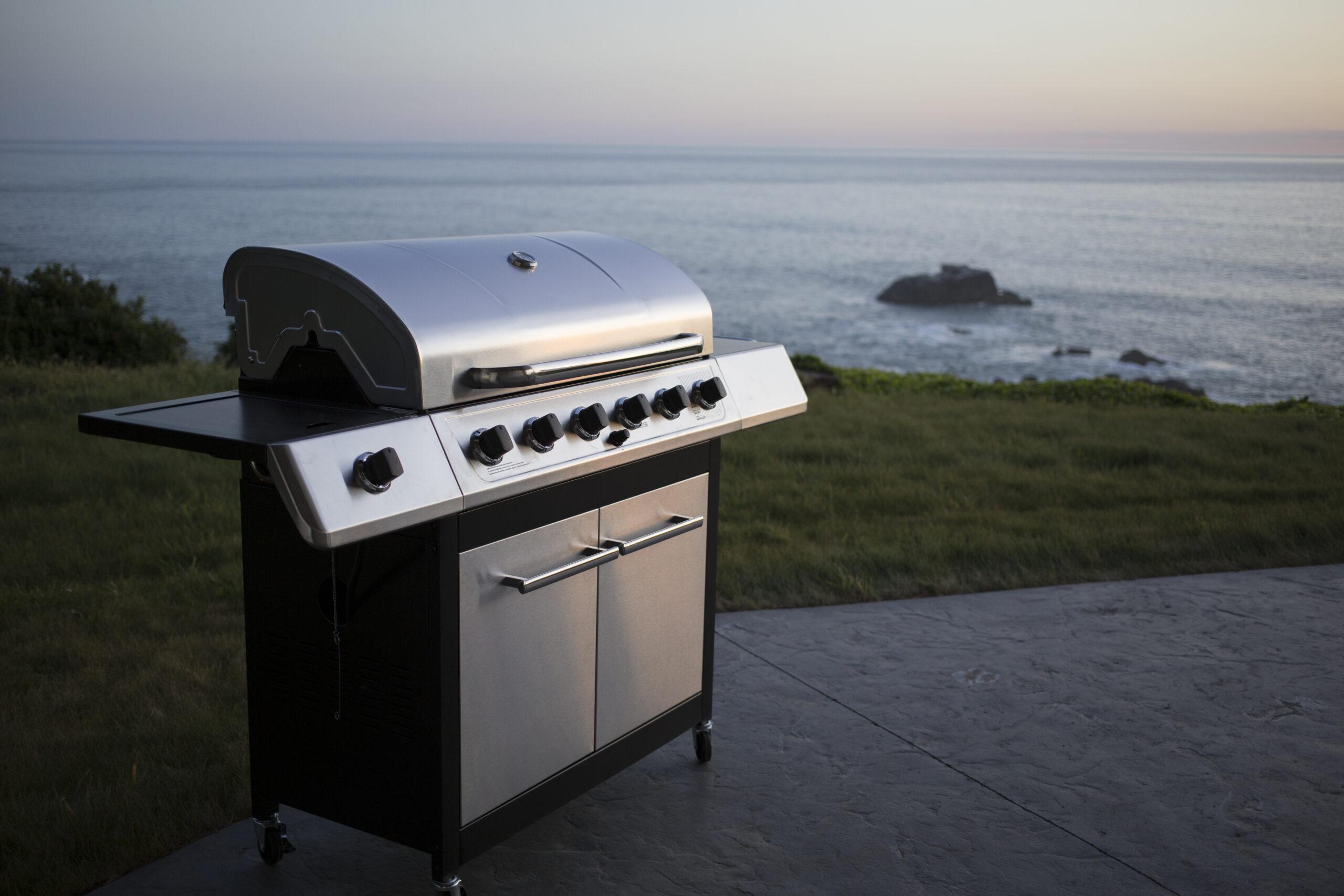
To extend the life of a grill and maintain its condition, adopting specific protective measures is crucial.
Key actions include practicing proper cleaning techniques, employing grill covers, and utilizing rust-resistant coatings.
Proper Cleaning Techniques
Regular cleaning is essential in preventing rust formation.
After each use, while the grill is still warm, scrub the grates with a stiff wire brush to remove food residue.
For a deeper clean, a solution of warm soapy water works well on most grill surfaces.
Every few months, dismantling the grill and cleaning its individual components will help in removing grease build-up.
Pay special attention to burners, flame tamers, and any parts that might retain moisture.
Thoroughly drying all components after cleaning is vital, as moisture is a primary factor in rust development.
Avoid using abrasive materials that can scratch surfaces, making them more vulnerable to rust.
Using Grill Covers
Grill covers offer an effective means of shielding the grill from external elements.
Invest in a high-quality, water-resistant cover that fits snugly over the grill.
This Heavy Duty 58-Inch BBQ Grill Cover, designed for durability and compatibility with brands like Weber, Genesis, and Charbroil.
Waterproof, weather-resistant, and UV fade-resistant, it features adjustable straps for a secure fit, ensuring all-weather protection.
A well-fitted cover protects against rain, snow, and debris, reducing the risk of moisture penetrating metal surfaces.
It is advisable to cover the grill immediately after it cools down from use.
Keep in mind that regular inspection of the cover is necessary to ensure there are no tears or damages, as even minor openings can allow moisture to enter.
When not in use for extended periods, store the grill and cover in a shed or garage if possible for additional protection.
Rust-resistant Coatings
Applying rust-resistant coatings provides an extra layer of defense against rust.
Many grills come pre-coated, but additional applications can enhance longevity.
Applying a primer is essential for rust prevention on grills, as it creates a protective layer that bonds with metal surfaces.
Using a rust-inhibiting primer like Rust-Oleum High Heat Primer is recommended, especially for grills exposed to moisture.
Ensure the surface is clean and lightly sanded for better adhesion.
Apply the primer evenly using a brush or spray and allow it to dry fully.
After the primer dries, apply a high-temperature paint or grill coating for enhanced rust protection.
Choose heat-resistant products like Rust-Oleum High Heat Ultra Spray Paint.
Apply in thin, even coats, allowing proper drying time between layers, and follow the manufacturer’s instructions for best results.
These steps not only protect your grill but also improve its appearance.
This preventative measure is a proactive approach to extending the grill’s lifespan.
Best Practices for Grill Maintenance
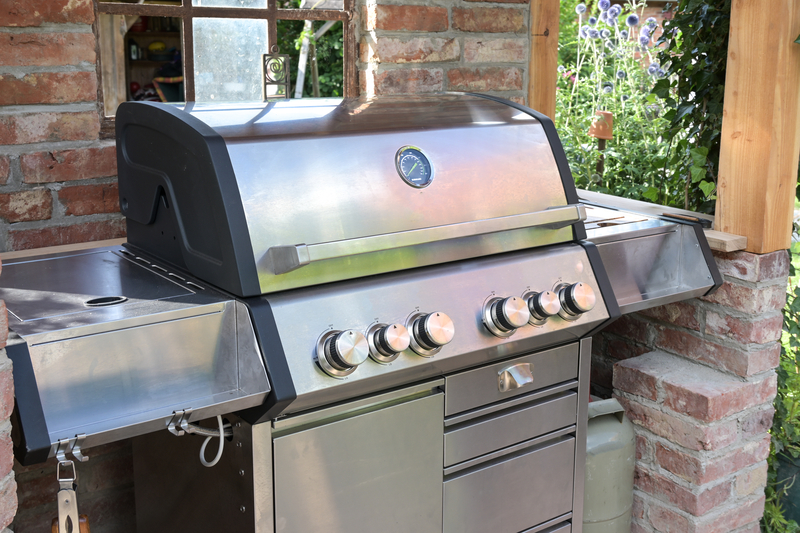
Regular maintenance is essential to extend the life of a grill and keep it in optimal condition.
Cleaning schedules, seasoning, and proper storage play crucial roles in preventing rust and ensuring a consistently high cooking performance.
Scheduled Cleaning
Routine cleaning is necessary for maintaining a grill.
After each use, remove food residues and grease using a grill brush with sturdy bristles.
Monthly deep cleans should involve dismantling grates and burners, soaking them in soapy water for easier scrubbing.
Inspect the interior for rust signs and use a wire brush to remove any buildup.
Wipe down all surfaces with a cloth dampened in a vinegar-water solution, which helps to combat rust formation.
Keeping a clean grill prevents corrosion and ensures better cooking results, contributing to longer service life.
Seasoning the Grill Grates
Applying a light coat of oil to the grill grates forms a protective barrier that helps prevent rust.
Before first use and periodically thereafter, favor oils with high smoke points, such as canola or grapeseed oil.
Heat grates to high temperatures, then brush on oil with a paper towel.
This process protects the metal while enhancing non-stick properties, resulting in improved cooking and flavor.
Seasoning also plays a significant role in extending the lifespan of grill components, especially those made from cast iron, which are susceptibility to moisture-induced rust.
Storage and Handling
Proper storage drastically affects a grill’s susceptibility to rust.
It should be covered with a waterproof grill cover when not in use, sheltered from harsh weather conditions such as rain or snow.
During winter months, it’s ideal to store it in a dry, enclosed space such as a garage or shed.
Disassembly before storage reduces potential for damage.
Disconnect and store propane tanks separately in a well-ventilated area.
Proper handling practices lessen exposure to elements that cause rust, ensuring that the grill is ready for use when grilling season returns.
By adhering to these practices, grill owners invest in their equipment’s longevity and performance, ultimately enhancing their outdoor cooking experiences.
Recommended Grill Models for Rust Resistance
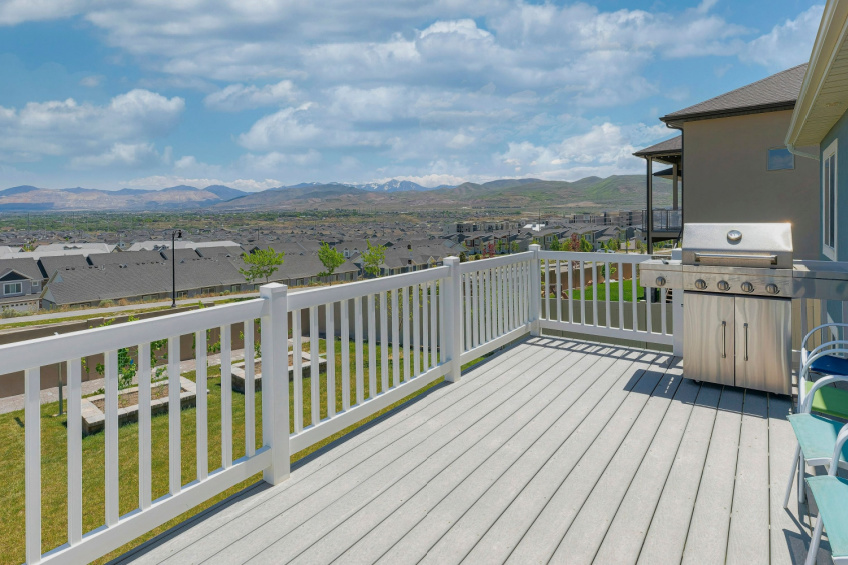
Selecting a grill that resists rust requires knowledge of materials and build quality.
Stainless steel grills are often recommended due to their durability and corrosion resistance.
304 stainless steel is a specific grade known for its superior rust prevention capabilities.
It’s frequently used in high-end grills.
Gas Grills
 The Weber Genesis S-435 Gas Grill is renowned for its exceptional build quality and innovative design.
The Weber Genesis S-435 Gas Grill is renowned for its exceptional build quality and innovative design.
The Genesis grills are crafted with durability in mind, featuring premium 304 stainless steel components.
This high-quality material ensures long-lasting performance, exceptional resistance to rust and corrosion, and superior heat retention.
These features make the grills ideal for both everyday grilling and outdoor cooking in all weather conditions.
Whether you’re a casual cook or a grilling enthusiast, this Weber Genesis offers reliable performance that stands the test of time.
 As mentioned earlier, this grill, the Napoleon Prestige 500 Gas Grill, offers exceptional performance and versatility for serious grilling enthusiasts.
As mentioned earlier, this grill, the Napoleon Prestige 500 Gas Grill, offers exceptional performance and versatility for serious grilling enthusiasts.
Built with durable stainless steel, this grill is designed to withstand the elements and maintain its sleek appearance for years to come.
Its rust-resistant construction ensures long-lasting durability, even in harsh outdoor conditions.
The inclusion of infrared side and rear burners provides enhanced cooking options, allowing for perfect searing and rotisserie cooking.
With its robust build and high-end features, the Prestige 500 offers both reliability and style for all your grilling needs.
Ceramic Grills
Ceramic kamado grills offer an alternative, with excellent rust resistance due to their ceramic construction.
 The London Sunshine Ceramic Kamado Grill Smoker (a rising competitor in the ceramic grill market) is a compact yet powerful grilling and smoking solution.
The London Sunshine Ceramic Kamado Grill Smoker (a rising competitor in the ceramic grill market) is a compact yet powerful grilling and smoking solution.
Designed for portability, this grill is perfect for outdoor enthusiasts who enjoy cooking while camping, tailgating, or hosting small gatherings.
Its ceramic construction offers excellent heat retention and even heat distribution, ensuring your food is cooked to perfection.
Built to last, this grill is resistant to rust, providing long-term durability and reliability without the worry of corrosion.
Its vibrant orange color adds a unique and stylish touch to your outdoor cooking setup.
These grills are versatile and can withstand various cooking styles and temperatures.
They require minimal maintenance to remain rust-free.
Additionally, cast aluminum grills, such as those by PK Grills, provide robust resistance to rust and excellent heat distribution.
 The PK Grills Charcoal BBQ Grill and Smoker Combo is a portable outdoor cooking unit made from sturdy, rust-resistant cast aluminum.
The PK Grills Charcoal BBQ Grill and Smoker Combo is a portable outdoor cooking unit made from sturdy, rust-resistant cast aluminum.
Its excellent heat conduction ensures even cooking, making it perfect for camping, tailgating, and park grilling.
With its versatile design, this grill allows both grilling and smoking, providing a complete cooking experience
Cast aluminum doesn’t rust like steel, which makes these models long-lasting.
Maintaining your grill can further improve its lifespan.
Regular cleaning and using a cover can enhance the corrosion resistance of any grill.
These models, with the right materials and build quality, help ensure longevity and minimal rust concerns.
Professional Tips for Long-term Grill Preservation
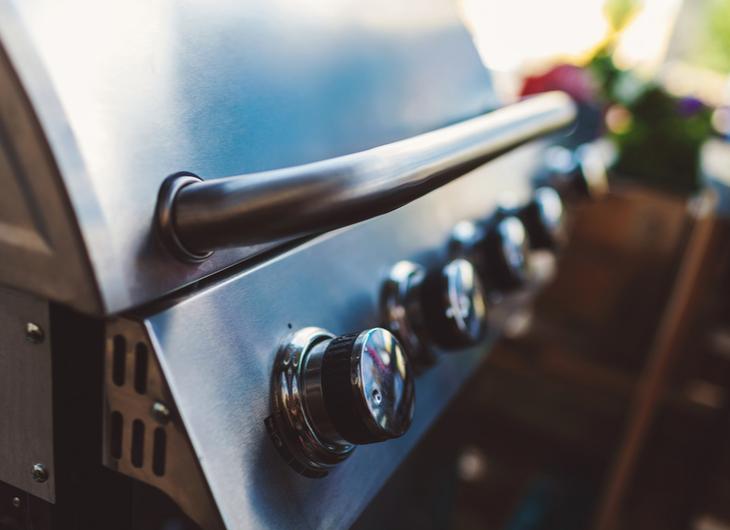
Regular Cleaning
After each use, remove food particles and grease.
This can be done using a wire brush while the grill is still warm.
Regular cleaning reduces the chance of rust and ensures the grill functions effectively.
Cover the Grill
Using a weather-resistant cover helps protect against rain, snow, and other elements.
Covers should be made of durable material and fit snugly to prevent moisture build-up.
Oil the Grates
Lightly coat the grates with vegetable oil after cleaning.
This simple step helps prevent rust and keeps food from sticking during your next grilling session.
Inspect and Maintain
Check for rust signs, especially after long periods of non-use.
If rust is present, it can be sanded down and recoated with grill-safe paint.
Store Properly
When not in use for extended periods, store the grill in a dry location, like a garage.
This extra step ensures maximum protection against weather damage.
Use a Grill Mat
Placing a grill mat underneath while cooking helps catch grease spills.
This protects both the grill and the surface it’s on, reducing deterioration risk.
Ventilation and Airflow
Ensure vents and openings are not clogged.
Good airflow reduces moisture build-up, a leading cause of rust.
Burn Off Residuals
After cooking, close the lid and let the grill run on high for 10-15 minutes.
This process helps burn off any leftover food remnants.
Avoid Abrasive Cleaners
Use non-abrasive cleaners tailored for grills to avoid damage to the finish.
Harsh chemicals can strip protective coatings, making the grill more susceptible to rust.
